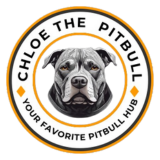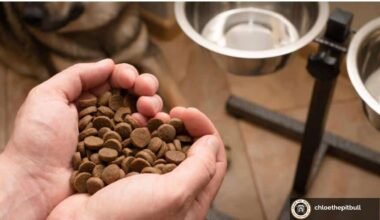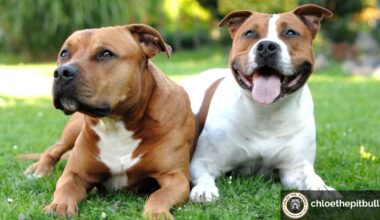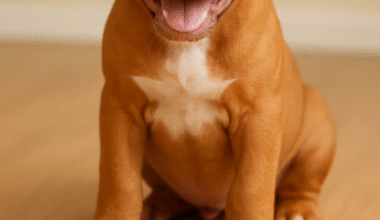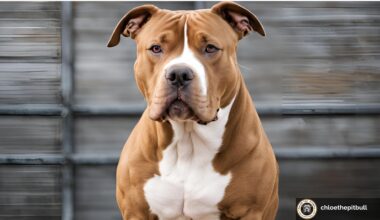
When it comes to pit bull nutrition, everyone seems to have an opinion. Some argue that Pit Bulls need nothing but raw meat, while others insist on grain-free diets or trendy high-protein formulas.
The result? A cloud of confusion that leaves owners wondering what’s truly best for their dogs.
This debate over pit bull nutrition isn’t just frustrating, it can be harmful. Feeding your Pit Bull based on myths or internet fads can lead to weight problems, poor muscle development, or even long-term health issues.
With so many voices claiming to have the “perfect” plan, it’s easy to overlook what really matters.
That’s why this article takes a different approach. We’re cutting through the noise and revealing five surprising truths about pit bull nutrition.
These insights will help you feed your dog smarter, keep them stronger, and give them the happy, healthy life they deserve.
Truth #1: Protein Quality Matters More Than Quantity

When most people think about pit bull nutrition, the first thing that comes to mind is protein. It’s true that Pit Bulls are muscular, athletic dogs that need plenty of protein to maintain their strength and energy.
But here’s the surprising part: the quality of protein matters far more than simply piling on large amounts.
Many commercial dog foods are packed with fillers like corn, soy, or meat by-products that look impressive on the label but deliver very little nutritional value. These fillers don’t provide the essential amino acids that Pit Bulls need for muscle development, recovery, and overall health.
In fact, diets heavy in low-quality protein can leave your dog feeling sluggish, bloated, and undernourished despite eating what seems like “enough”. True pit bull nutrition isn’t about quantity, it’s about giving your dog protein that the body can actually use.
The best sources of protein for Pit Bulls come from whole, animal-based ingredients. Lean meats like chicken, beef, lamb, turkey, and fish are loaded with high-quality protein and essential nutrients.
Fish, in particular, offers the added benefit of omega-3 fatty acids, which support joint health and keep your Pit Bull’s coat shiny.
When reading dog food labels, look for real meat listed as the first ingredient. This is a key sign that the food is built on quality protein, not cheap fillers.
If you want your Pit Bull to thrive, don’t fall for the myth that “more protein” automatically means better nutrition. Instead, focus on the source.
Prioritizing quality protein is the foundation of balanced pit bull nutrition and will set your dog up for strength, vitality, and long-term health.
Truth #2: Fats Are Friends, Not Enemies
When it comes to pit bull nutrition, many owners make the mistake of fearing fat. The word “fat” often carries a negative reputation, linked to weight gain or unhealthy diets. But for Pit Bulls, the right fats are essential for strength, energy, and overall health.
Healthy fats are one of the body’s richest energy sources. Pit Bulls are active dogs that burn calories quickly, and quality fats help them fuel those powerful muscles. Without enough healthy fat, even a high-protein diet can leave your dog lacking the stamina they need.
Fats also play a key role in keeping your Pit Bull’s skin and coat healthy. If you’ve noticed dull fur, itchy skin, or shedding, it could be a sign of poor fat intake. The right balance of omega-3 and omega-6 fatty acids supports a shiny coat and reduces inflammation.
So, what fats should you look for in a Pit Bull’s diet? Salmon oil, flaxseed oil, and chicken fat are excellent sources.
These provide not just energy but also critical nutrients that support brain function, immune health, and joint mobility. They’re far more beneficial than the cheap fats often used in low-quality dog food.
It’s important to separate healthy fats from unhealthy ones. Just like in human diets, too much fried or processed fat can lead to obesity and other health problems. In pit bull nutrition, the goal is balance, enough good fat to fuel your dog without tipping into excess.
When choosing food, check labels for quality fat sources listed clearly. Avoid options where fat comes from unnamed or generic oils. Instead, prioritize foods with fish oil, chicken fat, or flaxseed oil as recognizable, natural ingredients.
The bottom line? Fat isn’t your Pit Bull’s enemy, it’s one of their greatest allies. When paired with quality protein, healthy fats complete the foundation of proper pit bull nutrition, ensuring your dog stays energetic, strong, and thriving.
Truth #3: Carbs Aren’t Always Bad
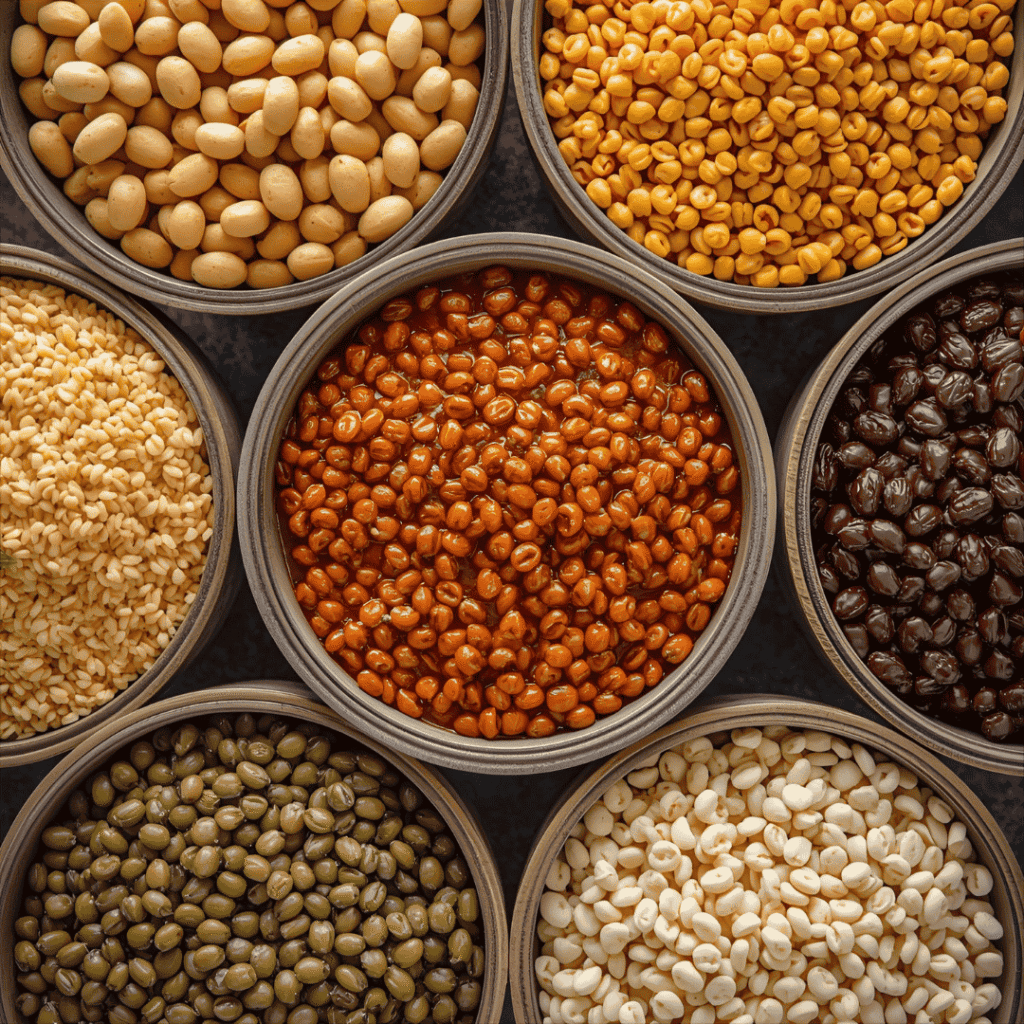
One of the biggest myths in pit bull nutrition is that carbohydrates are harmful. Many owners think carbs automatically cause weight gain, so they cut them out completely. The truth is, the right kind of carbs can actually benefit your Pit Bull’s health.
Carbohydrates are the body’s natural source of quick energy. Active dogs like Pit Bulls burn a lot of calories, and carbs help fuel their play, training, and exercise. When chosen wisely, carbs can support muscle recovery and keep your dog energized throughout the day.
The problem isn’t carbs—it’s low-quality carbs. Fillers like white flour, corn, or processed grains add calories without real nutrition. These can cause spikes in blood sugar and lead to weight issues. Unfortunately, many cheap dog foods rely heavily on these fillers.
High-quality carbs, however, are a different story. Foods like sweet potatoes, brown rice, oats, and peas provide slow-release energy along with fiber, vitamins, and minerals. These nutrients support digestion, maintain a healthy weight, and improve overall vitality in Pit Bulls.
Balance is key in pit bull nutrition. Carbs should never replace protein or healthy fats, but in the right amounts, they complete a well-rounded diet. Think of them as the fuel that keeps your dog’s body running smoothly.
When buying food, look for complex carbs listed alongside real meats and healthy fats. Avoid formulas where corn, wheat, or soy dominate the ingredient list. Instead, choose foods where carbs are natural, nutrient-dense, and balanced with protein.
Carbohydrates don’t deserve the bad reputation they’ve gained. With the right sources, they provide energy, digestive support, and valuable nutrients. For proper pit bull nutrition, quality carbs aren’t just safe—they’re beneficial.
Truth #4: Portion Control Is the Real Game-Changer
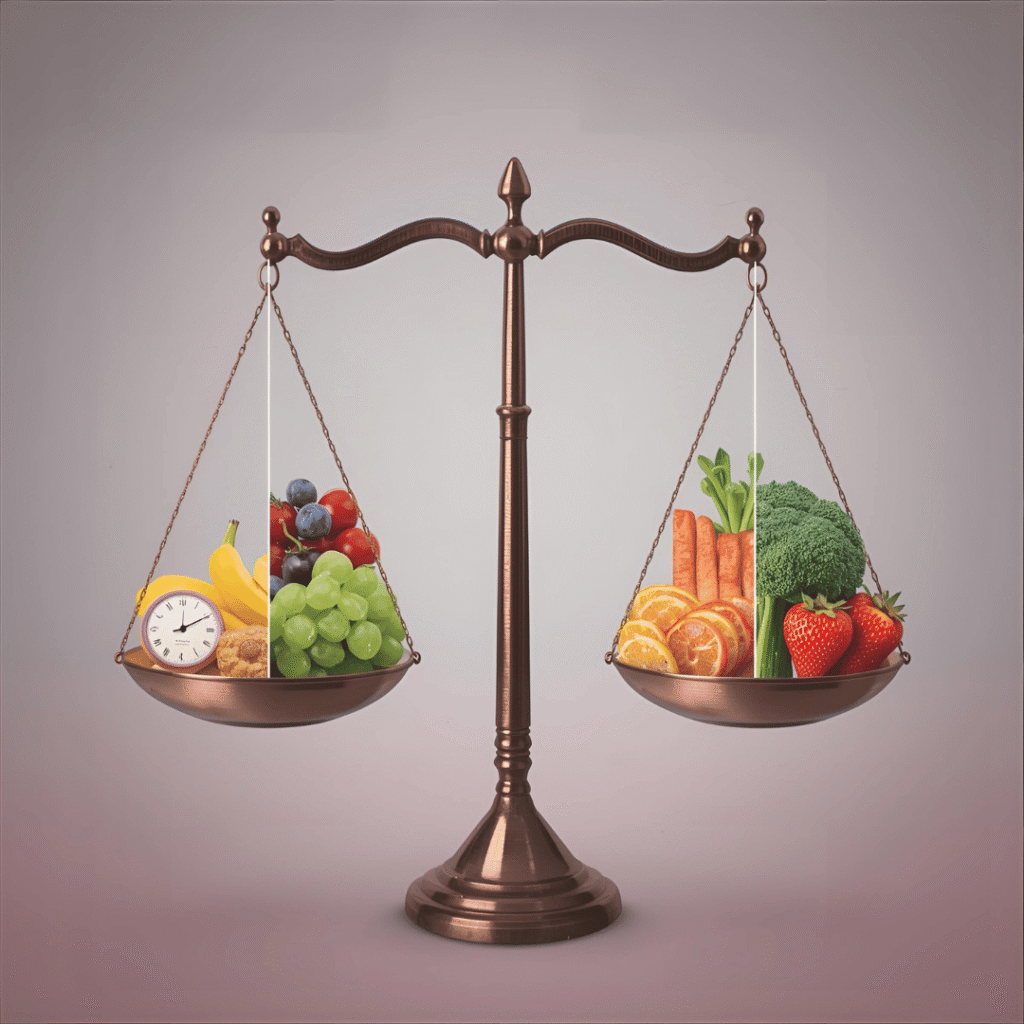
One of the most overlooked parts of pit bull nutrition is portion control. Many owners assume that giving a little extra food is a sign of love, but overfeeding can quickly lead to obesity, joint issues, and long-term health problems. Pit Bulls are muscular by nature, but that doesn’t mean they should eat endlessly.
Every dog has unique needs based on age, size, and activity level. A growing puppy, for example, requires more calories than a senior Pit Bull with a slower metabolism. Without portion control, even high-quality food can cause weight gain and digestive stress.
The best way to manage portions is to follow feeding guidelines from your vet or the dog food manufacturer. Measuring meals instead of “eyeballing” ensures your Pit Bull gets the right balance of nutrients without the risk of overeating. This is where precision in pit bull nutrition truly matters.
It’s also important to consider treats. Training snacks, table scraps, and chews can add hidden calories that throw off your dog’s diet. Keeping track of these extras helps maintain balance and prevent excess weight.
Portion control may not sound exciting, but it’s one of the most powerful tools in proper pit bull nutrition. By feeding the right amount, you’re not just preventing obesity—you’re protecting your dog’s joints, heart, and overall health.
Truth #5: Supplements May Be Necessary for Peak Health
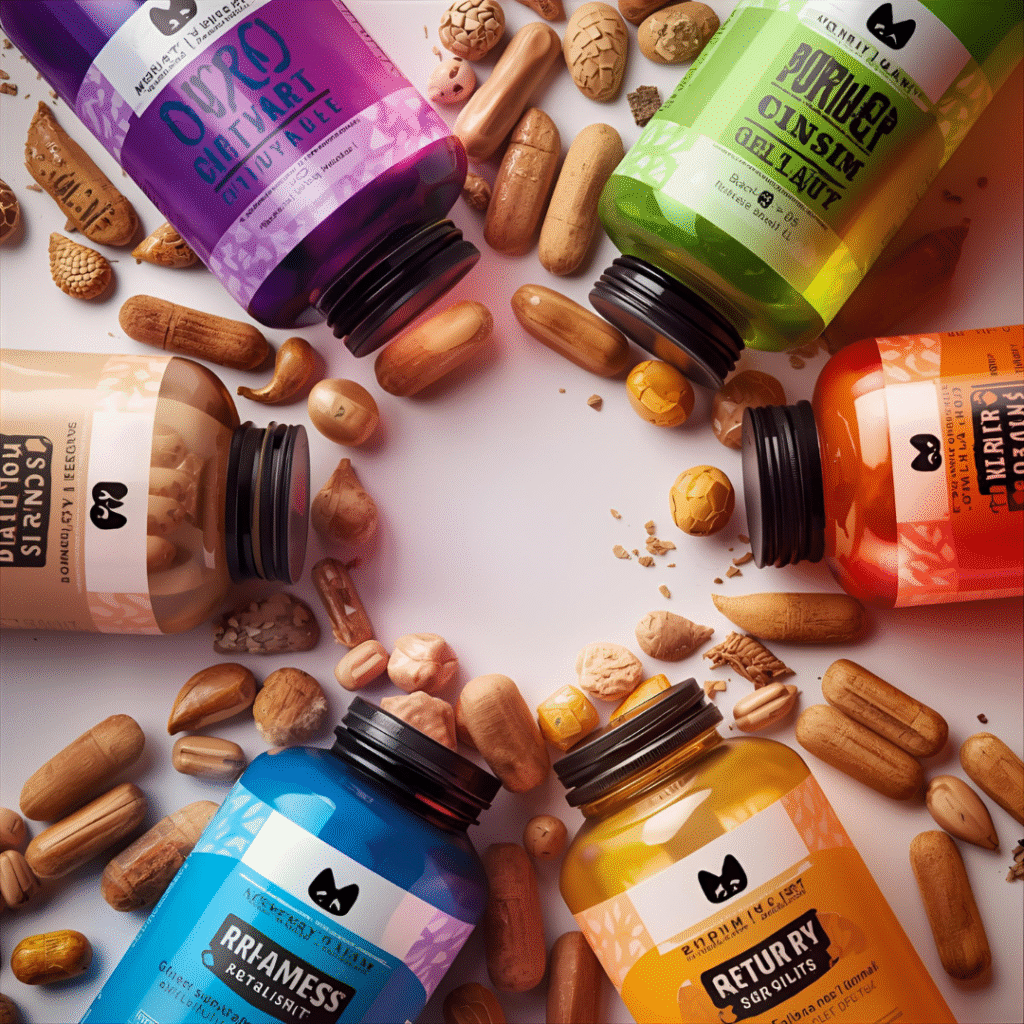
Even with a balanced diet, some Pit Bulls may need an extra boost. This is where supplements come into play. In pit bull nutrition, supplements aren’t a replacement for quality food, but they can fill nutritional gaps and support specific health needs.
Pit Bulls are prone to certain issues like joint pain, skin allergies, and digestive sensitivities. Supplements such as glucosamine and chondroitin can protect joints and ease mobility problems. These are especially valuable for active Pit Bulls that put a lot of stress on their muscles and bones.
Omega-3 fatty acids, often found in fish oil, are another common supplement. They reduce inflammation, improve skin health, and give your Pit Bull’s coat a glossy shine. For dogs struggling with itchy skin or dull fur, omega-3s can make a noticeable difference in overall comfort.
Probiotics also play an important role in pit bull nutrition. They support gut health, improve digestion, and strengthen the immune system. This is particularly helpful for Pit Bulls with sensitive stomachs or recurring digestive issues.
However, it’s important to remember that not every dog needs the same supplements. Giving too much or the wrong kind can do more harm than good. Always consult your vet before adding supplements to your dog’s routine. A professional can recommend the right dosage and type based on your Pit Bull’s individual needs.
Supplements are not magic fixes, but when used correctly, they’re powerful tools. By pairing them with quality food and proper portion control, you create a complete pit bull nutrition plan that supports long-term health, strength, and vitality.
Bonus Tip: Don’t Forget Hydration

When talking about pit bull nutrition, most owners focus on food—but water is just as important. Proper hydration keeps your Pit Bull’s organs, joints, and muscles working at their best. Without enough water, even the healthiest diet falls short.
Pit Bulls are active, muscular dogs that burn a lot of energy. They need constant access to clean, fresh water to stay cool, aid digestion, and prevent kidney problems. A dehydrated Pit Bull can quickly become tired, overheated, or even ill.
Make hydration a daily habit. Wash water bowls regularly, refill them often, and consider keeping multiple bowls around the house. On hot days or after exercise, monitor your dog closely and encourage extra drinking.
Hydration may seem simple, but it’s a cornerstone of proper pit bull nutrition. Pairing balanced meals with plenty of water ensures your Pit Bull stays healthy, energized, and thriving year-round.
Conclusion
Proper pit bull nutrition is more than just filling a bowl—it’s about balance, quality, and informed choices. From protein and fats to carbs, supplements, and hydration, each element plays a vital role in your Pit Bull’s health.
By focusing on high-quality ingredients, smart portion control, and the right nutritional support, you set your dog up for strength, energy, and long-term wellness. The myths may be loud, but the facts are simple: when you prioritize proper Pit bull nutrition, your dog will thrive—healthier, stronger, and happier every single day.
